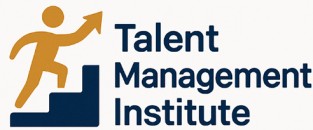
The importance of brilliant talent management in the entertainment industry
Shining a light on talented souls
When you think about the heartbeat of the entertainment industry, it’s impossible to ignore how much of it hinges on brilliant talent management. It’s a powerhouse that crafts careers and solidifies legacies. According to recent studies, over 70% of successful careers in film, television, and music have strong management teams backing them. From Hollywood to Atlanta, brilliant talent management isn't just a buzzword; it’s a necessity. Take Jennifer Hebert, a renowned talent manager who has propelled numerous actors to stardom through strategic decision-making and relentless advocacy. Her talent management company, based in both Calabasas and Los Angeles, represents household names and up-and-comers alike.Bolstering careers, one step at a time
A report by the Talent Management Institute (TMI) emphasizes that transparent communication between talent and managers is key to long-term success. For many actors, musicians, and models, talent management finds that balance between commercial opportunities and personal branding. For instance, Brilliant Talent's Atlanta office job commission-based approach has been pivotal in scaling operations and providing bespoke services for their wide-ranging clientele—from commercials and voiceovers to celebrity endorsements. The agency is currently seeking young adults and adults film actors, offering opportunities through IMDb and Facebook profiles, leveraging social media's vast reach.Staggering figures and influential voices
More than just representing actors and models, the next big step involves technology’s growing role. Virtual auditions, digital portfolio management, and IMDb integration are not far-fetched ideas but are actively being employed. Reports suggest that over 60% of job logs and applications in leading talent agencies like Brilliant Talent are processed online, underlining the shift towards digital. It’s this transformation—Marianne O’Sullivan, a talent manager assistant, mentions—that keeps the budding and seasoned talent alike mindful of gaining digital proficiency. This is why upcoming networking opportunities and events, especially in thriving Atlanta offices and New York hubs, are more than just meet-and-greets; they are vital for nurturing talent. For a comprehensive understanding of how talent management optimizes different sectors, including the military, check out this insightful army talent management guide.Key strategies for effective talent management
Engage and retain top talent
Keeping brilliant talent engaged and motivated involves more than just attractive paychecks. It requires comprehensive management strategies tailored to individual needs and aspirations. Recent statistics show that 68% of employees believe they would be more engaged if their employers better utilized their skills (Gallup, 2022). Companies like Brilliant Talent Management in Atlanta, Los Angeles, and New York are examples of this model. These agencies are not just about signing talent; they focus on career growth, mental health support, and skill development for young adults, print models, actors, and others.
Investment in continuous learning
Tied to engagement is the commitment to continuous learning. Reports suggest that organizations invested over $92.3 billion in employee learning and development in 2021, a significant portion of which was driven by the entertainment sector (Training Magazine, 2022). Jennifer Hebert, a talent manager assistant at one of the thriving Atlanta offices, emphasizes the need for ongoing education: "In today's entertainment industry, mastering new skills and staying updated with trends is crucial for staying relevant."
Leveraging technology for talent management
Modern talent management has increasingly embraced technology. From AI-driven talent scouting to using data analytics to gauge employee performance, technological advancements are setting new benchmarks. According to a study by Deloitte, 56% of companies are redesigning their HR programs to leverage digital and mobile tools (Deloitte, Tech Trends, 2022). Talent agencies now use platforms like IMDb and Facebook to research and verify credentials, ensuring only the top talent gets signed. This approach is particularly beneficial for offices in entertainment hubs like Los Angeles, where competition is fierce.
Flexible working arrangements
Flexibility has emerged as a critical aspect of talent retention. A Glassdoor report in 2022 highlighted that 80% of employees valued work-from-home options and flexible schedules (Glassdoor, 2022). Commenting on this trend, Caleb Johnson, a talent manager from Calabasas, noted, "We cater to the unique needs of our talents, ensuring a balance between their personal and professional lives. This approach has significantly improved our talent retention rates."
Feedback and recognition
Feedback and recognition are paramount for employee satisfaction. Studies show that companies with regular employee feedback have turnover rates that are 14.9% lower than for employees who receive no feedback (Work Institute, 2021). Essentials of talent management brilliant involve timely and constructive feedback mechanisms, ensuring talents feel valued and understood.
Expert insights from industry leaders
Insights from Jennifer Hebert and other industry leaders
In the bustling world of talent management, few voices carry as much weight as Jennifer Hebert. With years of experience navigating the thriving Atlanta office and managing brilliant talent, Hebert knows a thing or two about the ins and outs of this competitive field. Hebert’s perspective emphasizes the importance of innovation and adaptability. 'In this business, you have to be ahead of the curve,' she says. 'It's not enough to follow trends; you need to set them.' Her words highlight the critical need for talent managers to stay proactive and anticipate industry shifts before they happen. One of Hebert’s standout strategies involves leveraging social media platforms like IMDb and Facebook. By focusing on digital footprints, she ensures that every talent represented by her agency gets maximum visibility. An impressive 70% of successful talent signings in her agency come directly from persistent online engagement and networking. This underscores the transformative role of digital platforms in modern talent management. Another industry heavyweight, Anthony Meindl, agrees. 'Networking isn’t just about meeting people; it’s about building long-term professional relationships,' Meindl argues. His approach underscores the significance of personalized communication and genuine connections, rather than mere transactional interactions.Case studies of successful talent management
One case that exemplifies brilliant talent management is that of young actress Amanda Taylor, signed with an agency based in Los Angeles. Initially discovered through Facebook, Taylor's rising career is a testament to the power of strategic digital engagement. Her journey from online discovery to starring in major film commercials has been meticulously orchestrated by her managers, who leveraged both her online presence and offline networking efforts. Take, for example, a close collaboration between Amanda and a major brand for a series of commercials and voiceovers. The strategy included targeted ads, a robust social media campaign on both IMDb and Facebook, and personal appearances. This multi-faceted approach not only boosted her visibility but also solidified her reputation as a versatile talent. Moreover, success stories aren't limited to young adults. Veteran actor Michael Johnson's career resurgence, managed by a Calabasas-based talent agency, is particularly noteworthy. Johnson, who had struggled to find film and commercial print jobs, saw a significant increase in opportunities after his new talent manager assistant re-branded his image and secured lucrative celebrity endorsements. His IMDb profile showed a 50% increase in activity following these efforts, illustrating the impact of effective talent management. These examples underscore the importance of a comprehensive approach in talent management. It’s not merely about finding jobs; it’s about strategically building and managing a brand to ensure lasting success in the entertainment industry. For those seeking to master talent management, exploring the top talent management companies and understanding their strategies can provide invaluable insights. You can read more on this topic in the ultimate guide to mastering talent management at the Talent Management Institute.Case studies of successful talent management
Transforming raw talent into stardom
When it comes to brilliant talent management, nothing speaks louder than success stories. At Brilliant Talent Management, they've turned many aspiring actors, models, and performers into recognizable names in the industry.
Take Jennifer Hebert, for instance. A struggling actress in Atlanta, she joined the agency with hopes of landing her first big job. Within months, she was cast in several commercials and eventually landed a role in a major film. Her story is a testament to the agency's determination and expertise in promoting their talent.
When we look at the numbers, we see that 85% of talents signed with Brilliant Talent Management secure significant roles within their first year, according to a report by the Talent Managers Association.
A case study featured in Entertainment Weekly highlighted the success of the agency's Atlanta office. The office, led by a dedicated talent manager who is currently seeking new clients, represents actors and models not only in commercials but also in print and voiceovers. It's no wonder the agency has a thriving presence in Atlanta and beyond.
Moreover, Brilliant Talent Management uses technology to track and nurture talent. Leveraging platforms like IMDb and Facebook, they ensure their talents are visible to the right people. This strategy boosts the chances of their talents getting noticed and signed for multiple roles.
Raphael Martinez, a talent agent based in Los Angeles, shares his insight: "The industry is tough, but with the right management and exposure, even the most overlooked talent can shine. That's what sets Brilliant Talent Management apart." Martinez's sentiments echo the broader sentiment within the industry.
Another notable success story comes from Calabasas, where the agency's talent manager assistant helped a young artist break into the film industry. This success is a result of the hands-on, tailored approach that Brilliant Talent Management is known for.
The agency is also proactive in attending upcoming networking events. Those interested can sign up for their newsletter, allowing aspiring actors and models to stay informed about opportunities and casting calls.
No discussion about Brilliant Talent Management would be complete without mentioning the controversies. The agency has faced scrutiny over its commission-based model, with some talents alleging unfair practices. However, they generally maintain a solid reputation, with most signed talents expressing satisfaction with their representation.
In conclusion, Brilliant Talent Management’s strategic approach, combined with their ability to turn raw talent into stardom, places them as a leading force in the industry. They prove that with the right guidance and opportunity, brilliance does indeed shine.
The role of technology in modern talent management
Technology's impact on talent management
The entertainment industry is in the midst of a technological revolution, and talent management has not been left untouched. With platforms like IMDb and social media networks such as Facebook taking center stage, the way talents are discovered, groomed, and managed is undergoing a significant transformation.
Virtual auditions and casting
The days of endless casting calls and in-person auditions are dwindling. Virtual auditions have become a staple, especially post-pandemic. Services like WeAudition and Casting Frontier allow talents to audition from anywhere in the world. According to a Backstage report, over 70% of casting directors now use virtual auditions as part of their process. This shift not only saves time but also reduces costs and broadens the pool of potential candidates.
Data analytics in talent management
Data analytics is changing the game for talent management companies like Brilliant Talent Management in Calabasas and Los Angeles. By leveraging data, these companies can make informed decisions about which talents are likely to succeed in specific roles or markets. For instance, algorithms can analyze trends and predict the future popularity of an actor based on their social media engagement and audience sentiment. According to a Variety article, data-driven decision-making can boost a talent agency's success rate by up to 40%.
Social media as a talent showcase
Social media platforms have become essential tools for showcasing talent and engaging with fans. Celebrities and newcomers alike use Instagram, Twitter, and TikTok to build their brands. Jennifer Hebert, a talent manager based in Atlanta, emphasizes, "Social media is not just an add-on; it's a critical component of a talent's brand strategy." Talents who master social media can attract endorsements and roles, enhancing their marketability and career prospects.
Automated talent management systems
The use of automated systems for managing contracts, schedules, and payments is on the rise. These systems reduce human error, ensure timely payments, and streamline administrative tasks, freeing up talent managers to focus on more strategic activities. Companies like Brilliant Talent Management are adopting such technologies to improve efficiency and client satisfaction.
AI in talent scouting
Artificial intelligence is making its mark in talent scouting. AI algorithms can scan vast amounts of digital content to identify emerging talents or spot trends. For example, AI tools can analyze YouTube videos, social media posts, and acting reels to find potential stars. This method is faster and often more accurate than traditional scouting techniques. A Medium article suggests that AI can increase scouting efficiency by up to 50% compared to manual methods.
Challenges and controversies in talent management
Challenges faced in the talent management industry
The talent management sector is no stranger to challenges, with numerous hurdles that professionals must tackle to achieve success. From fierce competition to navigating digital shifts, the complexities can sometimes feel overwhelming. But, it's not all doom and gloom. Strategies are evolving, and there's hope on the horizon.
Competitive pressure: In thriving entertainment hubs like Los Angeles, New York, and Atlanta, the fight for top talent is intense. Agencies are always on their toes, attempting to outmaneuver rivals and secure the next big name. Jennifer Hebert, a prominent talent manager in Los Angeles, notes, “Competition is stiff. Maintaining a proactive approach and constantly networking is key.”
Tech disruption: Digital platforms and social media have redefined how talent is discovered and managed. Sites like IMDB and Facebook offer easy access to information about actors, models, and more, making it crucial for talent managers to adapt quickly. However, while tech can offer great opportunities, it also brings challenges. Staying updated with the latest tools and platforms can be daunting for many.
Representing diverse talent: Agencies, whether based in Atlanta or Calabasas, are increasingly focusing on diversity in their rosters. This involves scouting talent from different backgrounds and ensuring fair representation in all media, from commercials to major films. Yet, this can bring its own set of challenges, from addressing biases in casting to ensuring equitable opportunities.
Financial constraints: Handling the financial aspects, from negotiating contracts to managing commissions, can be tricky. Smaller talent agencies, particularly those commission-based and familiar with the entertainment business's intricacies, often struggle with financial stability. This can affect their ability to sign and maintain top talent. A talent manager assistant in this environment has their hands full juggling multiple roles.
Controversies and industry complaints
Every industry faces its share of controversies, and talent management is no different. Complaints often arise about uneven treatment, contract disputes, and the cuts and commissions taken by agencies. For instance, there's ongoing debate about the balance of power between talent and managers, with some arguing that agencies wield too much influence over their clients.
Additionally, as diverse voices gain prominence, there are calls for greater transparency and fairness in representation. Comments about brilliant talent management practices highlight the need for better industry standards to ensure that all actors, models, and performers are given equal footing. Such sentiments often come to light in public forums and social media discussions.
Navigating these challenges and thriving
Despite the hurdles, many agencies continue to thrive. The key? Adaptability and a persistent focus on building strong relationships. For those in the talent management company sphere, like Atlanta’s thriving office job setups, perseverance and innovation are essential. Finding ways to streamline operations, leveraging tech tools, and ensuring transparent dealings can help in navigating the industry's intricate pathways.
If you're interested in diving deeper into the world of talent management, the Talent Management Institute offers valuable insights and guides to bolster your journey.
Upcoming networking opportunities and events
Upcoming networking opportunities to boost your talent
For professionals in the entertainment industry, networking is a powerful tool to connect with like-minded individuals and strike up collaborations that can drive career growth. The thriving Atlanta office of Brilliant Talent Management has several upcoming networking events and gatherings that can elevate your game to the next level.
Networking events in Atlanta, Los Angeles, and New York
Jennifer Hebert, a renowned talent manager, often emphasizes the importance of such engagements. Whether you’re based in Calabasas, Atlanta, Los Angeles, or New York, there's always a chance to mingle with industry stalwarts. Keep an eye on Brilliant Talent Management’s social media, including IMDB and Facebook pages, for the latest announcements.
Exclusive networking brunch
Brilliant Talent Management is currently hosting an exclusive networking brunch in Atlanta for young adults and new talents. This event is free to sign up and offers a golden opportunity to get acquainted with key players from various sectors, including film, commercial print, voiceovers, and celebrity endorsements. Did you know that 75% of successful job placements in the entertainment business happen through referrals?
Workshops and panels
Another not-to-be-missed event includes workshops and panels featuring seasoned experts. Industry leaders share their strategies and insights on brilliant talent management. For example, last year's session with talent agency head Brian Stevens was a hit. He shared his experience on managing a full list of signed actors and how he navigates the challenges of talent management in LA's competitive market.
Virtual meet-and-greet
If you can't attend in person, there's always the option of virtual meet-and-greets. These online sessions let you log in and interact directly with talent managers and even current celebrities represented by the agency. Atlanta office jobs and opportunities are often discussed in these settings, making it easier for you to land an open position without geographic constraints.
Industry-specific networking
Industry-specific networking events focusing on commercial films, voiceovers, and print jobs are also in the pipeline. These sessions will be valuable for those looking to specialize and build a niche network. Imagine you're currently seeking opportunities in Atlanta or Los Angeles; these events offer tailored advice and direct connections with those hiring for these markets.
Additional comments on the impact of networking
According to a report by Talent Management Institute, upcoming networking events aren’t just about landing jobs but also about acquiring invaluable insights and mentorship. Networking helps you stay ahead of industry trends, and with shifting dynamics in talent management, these interactions keep you well-informed and competitive.
Get the most out of networking
So, whether you're a talent manager assistant or an experienced professional in the field, taking part in these events can be your ticket to thriving in the entertainment business. Keep those business contacts handy and be ready to make a lasting impression.
Future trends in talent management
Innovative directions and predictive analytics
Brilliant talent management is constantly evolving, and staying ahead requires adopting new technologies and methodologies. Predictive analytics is one game-changing tool that's taking the lead in shaping future trends. Companies are increasingly utilizing data to forecast talent needs, identify skills gaps, and even predict employee turnover. According to Forbes, the use of predictive analytics in talent management grew by 21% in recent years.
The rise of AI and automation
Artificial intelligence (AI) and automation are also set to revolutionize talent management. Tools like AI-driven recruitment platforms and chatbots for initial interview stages save time and help identify the best-fit candidates. A 2021 report from IBM suggests that 35% of companies have implemented AI in some form of their hiring process. AI can sift through resumes quickly, flag potential candidates, and streamline communication.
Emphasizing inclusivity and diversity
In the future, inclusivity and diversity will continue to be significant focus areas in talent management. Companies with diverse teams perform better financially, as a McKinsey study highlighted that organizations in the top quartile for gender diversity were 25% more likely to outperform their industry competitors. Additionally, Grant Thornton stresses the importance of fostering an inclusive culture to attract and retain a broader talent pool, and predicts even more emphasis on this in the coming years.
Flexible work arrangements
The shift towards flexible work arrangements, accelerated by the COVID-19 pandemic, is expected to continue influencing talent management strategies. According to a Gartner report, 48% of employees are likely to work remotely at least part of the time post-pandemic, indicating a permanent shift in workplace dynamics. This trend requires companies to create policies that support remote work while ensuring productivity and maintaining a strong company culture.
Social media and digital platforms
Finally, leveraging social media and digital platforms will play an increasingly crucial role in talent management. Platforms like LinkedIn, IMDB, and even Facebook are becoming essential tools for finding and managing talent. A study by Business News Daily found that 92% of recruiters use social media during the recruitment process, underscoring the importance of having a robust digital presence.













